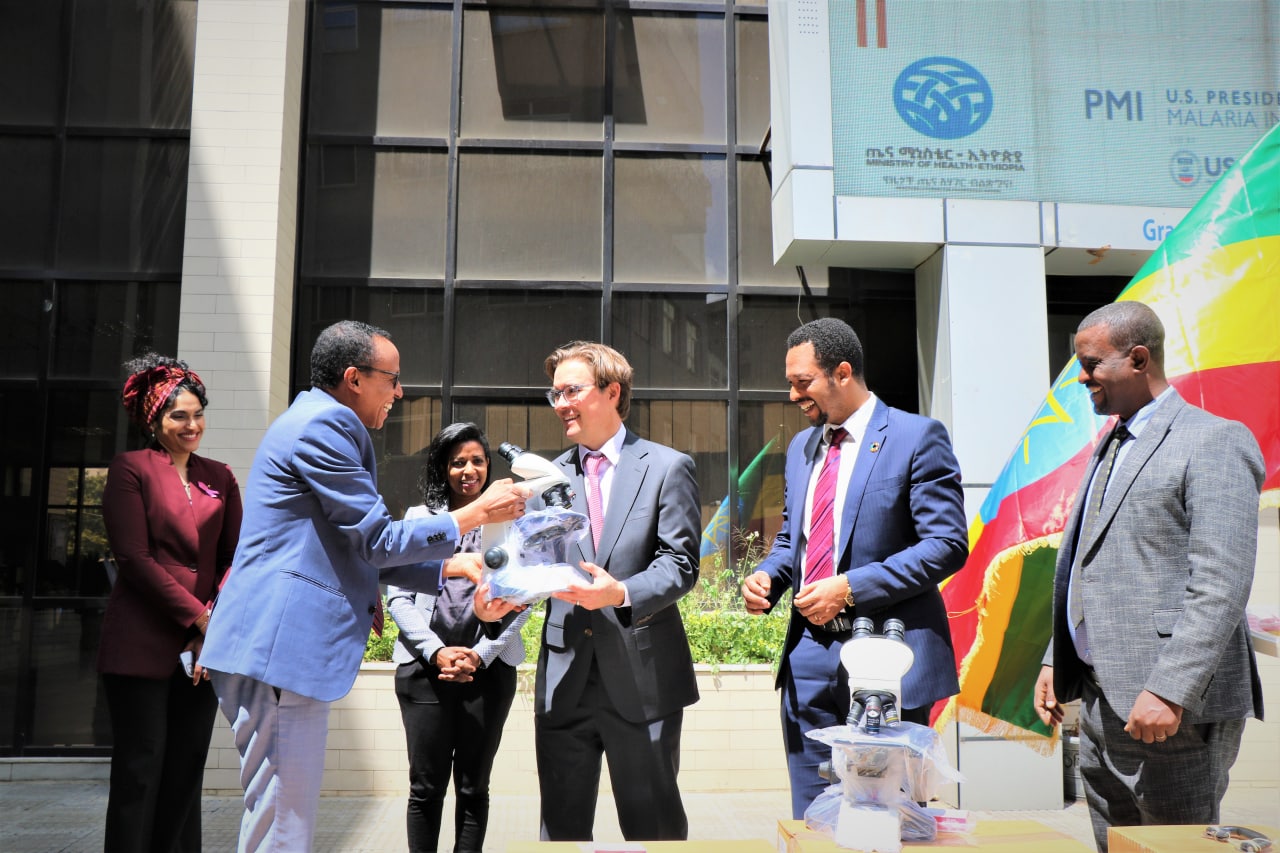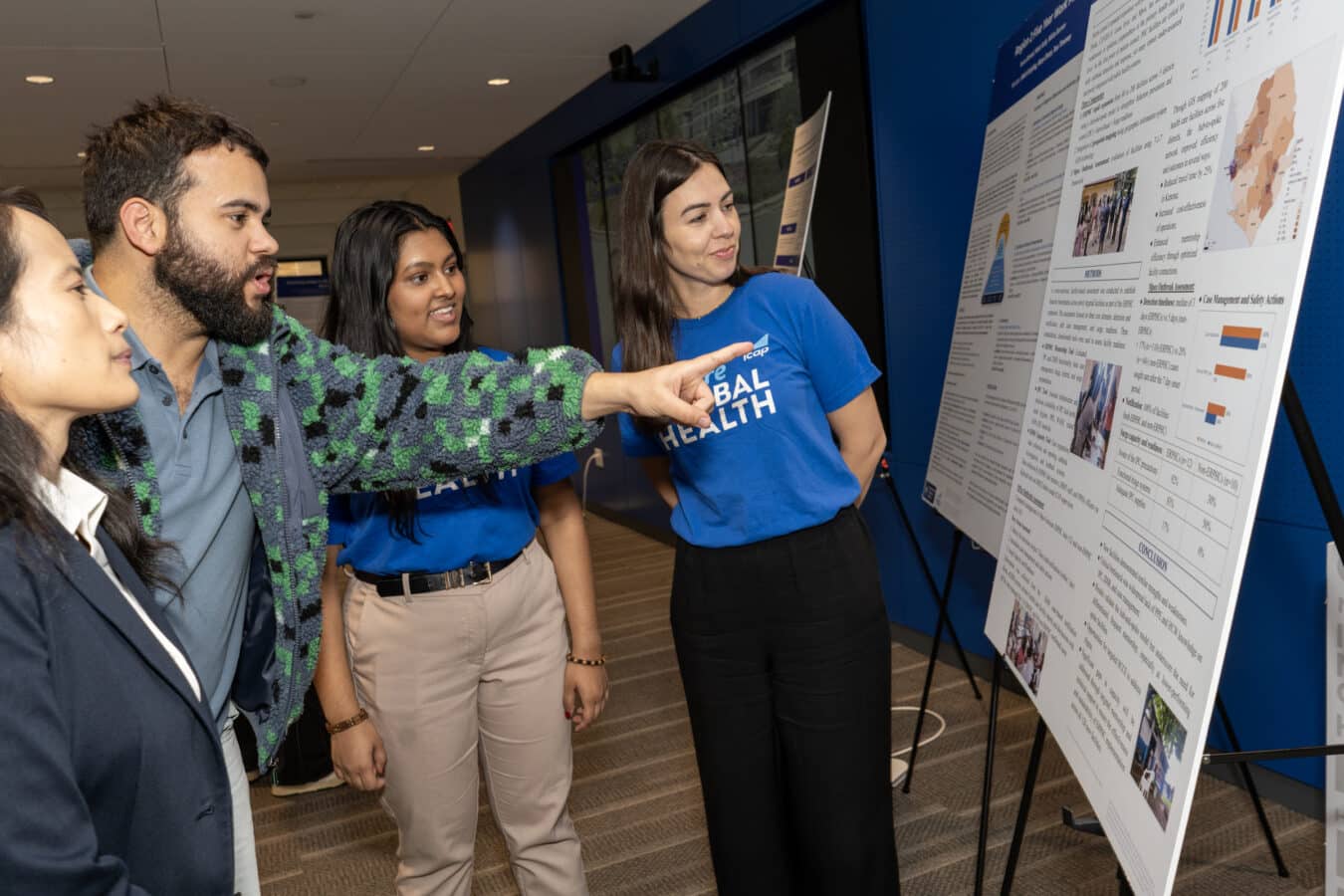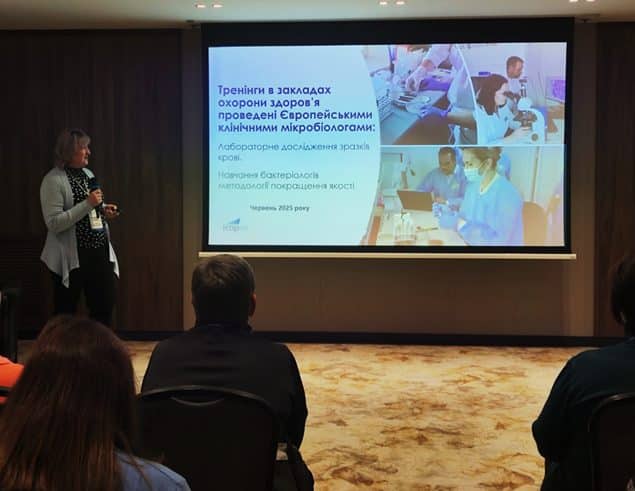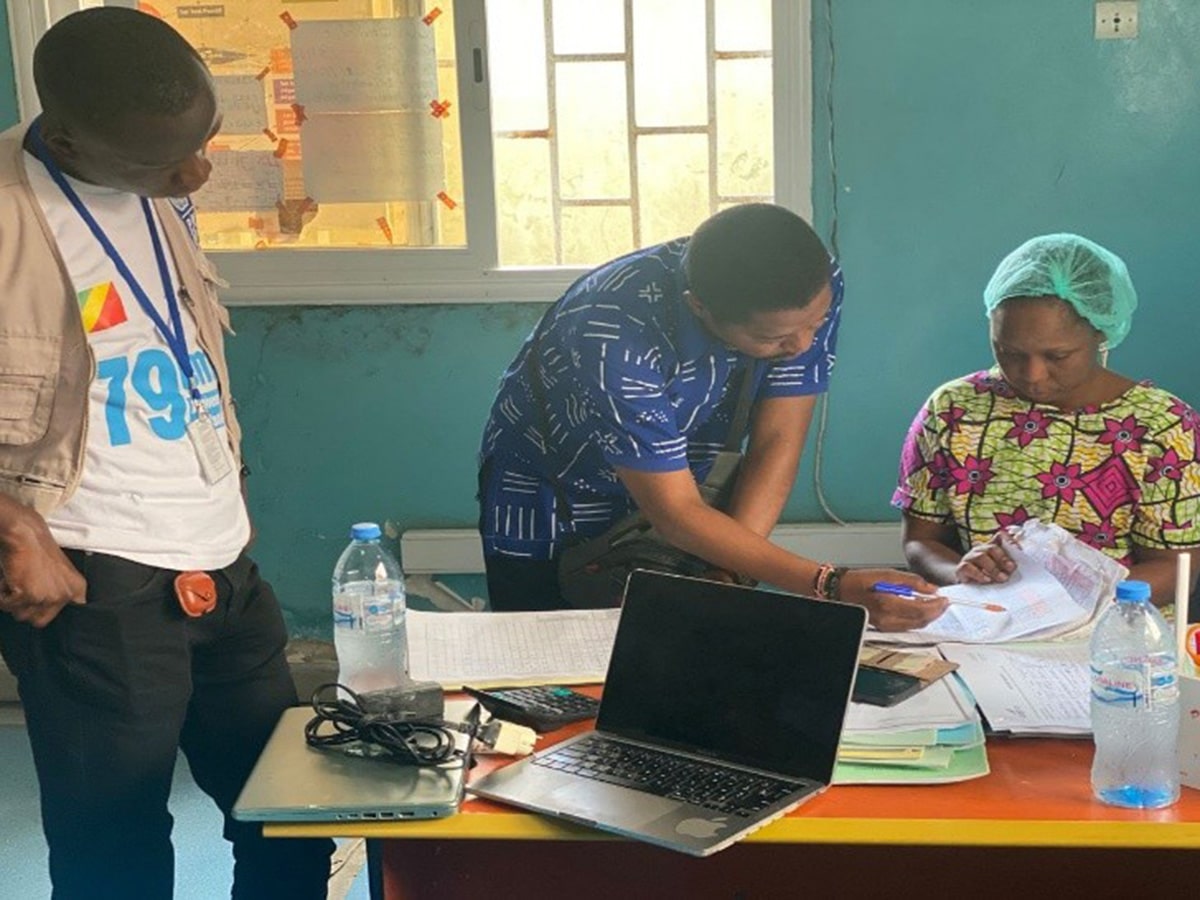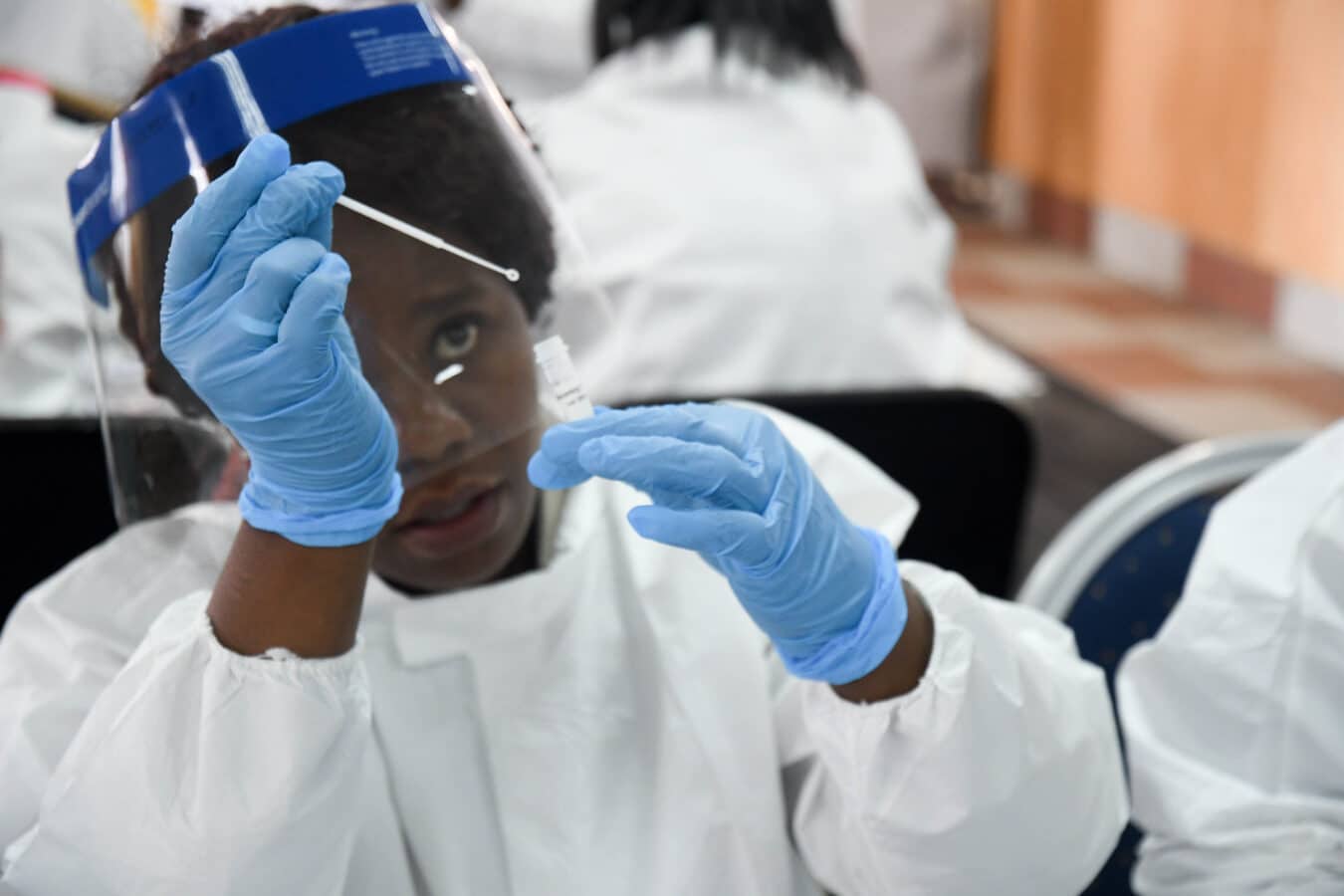On 27 October 2022, the government of Ethiopia recognized the continuing work of ICAP at Columbia University to support the ongoing efforts to control malaria in the country, with funding from the US Agency for International Development (USAID) through the President’s Malaria Initiative (PMI).
At a ceremony held at the ministry of health, State Minister of Health Dereje Duguma, MD, MPH, said various governmental and non-governmental organizations have joined hands and are working together in an effort to prevent, control and eliminate malaria in the country.
As part of the ceremony, the minister made reference to ICAP’s contribution of nearly 45 million birr (approximately $850,000 US) worth of malaria diagnostic equipment and materials that will be distributed to health facilities in six regions of the country to support malaria diagnosis and case management.
The donation includes 550 microscopes and other 50 different items of malaria laboratory diagnosis and case management commodities intended to strengthen the malaria laboratory and case management services at PMI-supported health facilities across the country. An additional 100 microscopes are on the procurement process to further support Ethiopia’s fight against malaria. The donated malaria equipment and supplies are slated to be distributed to health facilities in Amhara, Oromia, Tigray, Somalia, Afar, Benishangul-Gumuz, and the SNNPR regions.
Timothy Stein, deputy mission director of the United States Agency for International Development (USAID) in Ethiopia, vowed to strengthen its partnership with the government of Ethiopia in supporting the national effort embarked on towards malaria prevention, control and elimination. In the past ten years, he said, USAID has made generous support to Ethiopia to help reducing malaria morbidity and mortality in the country. He pointed out that some of the donated equipment will be provided to health facilities in order to restore malaria diagnosis and case management services affected by the conflict currently affecting the country.
Zenebe Melaku, MD, ICAP’s country director in Ethiopia, for his part, said the donation will make meaningful changes in strengthening the practices of malaria diagnosis and case management in the facilities where a shortage of such equipment and supplies have been present.
Since 2008, through the funds obtained from PMI, ICAP has supported over 1,800 health facilities and 3,000+ community health posts to improve the quality of malaria diagnosis and treatment services. According to a press statement released at the ceremony, the donation is a follow-up of the previous support where over 1,100 microscopes were distributed to health facilities through the previous Malaria Laboratory Diagnosis and Monitoring (MLDM) Project and the ongoing Malaria Diagnosis and Treatment Activity (MDTA).
The President’s Malaria Initiative and its implementing partner, ICAP in Ethiopia, are closely working with the Ministry of Health, the Ethiopian Public Health Institute, and the Regional Health Bureaus to provide technical assistance and support to improve the quality of malaria diagnosis and treatment services in the country.
About ICAP
A major global health organization that has been improving public health in countries around the world for nearly two decades, ICAP works to transform the health of populations through innovation, science, and global collaboration. Based at Columbia Mailman School of Public Health, ICAP has projects in more than 40 countries, working side-by-side with ministries of health and local governmental, non-governmental, academic, and community partners to confront some of the world’s greatest health challenges. Through evidence-informed programs, meaningful research, tailored technical assistance, effective training and education programs, and rigorous surveillance to measure and evaluate the impact of public health interventions, ICAP aims to realize a global vision of healthy people, empowered communities, and thriving societies. Online at icap.columbia.edu .


